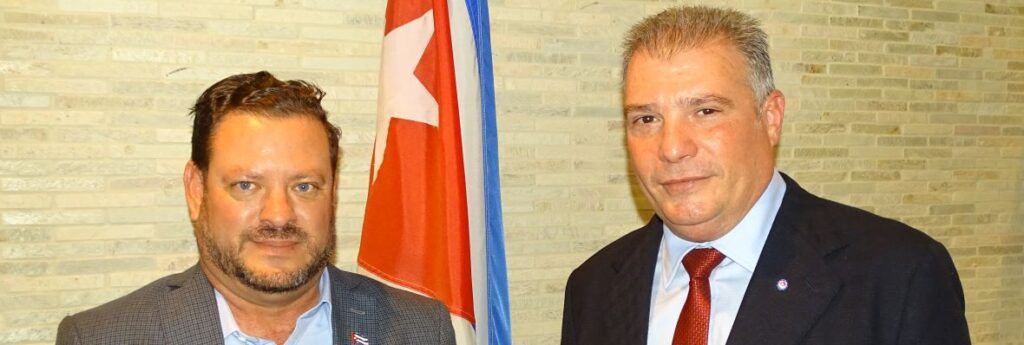Amidst the buzz that the US is making easier for its citizens to visit Cuba by removing flight restrictions, the Caribbean country’s tourism minister visited Toronto last week to declare that this country will “not be forgotten.”
At a trade lunch at Toronto’s posh Yorkville restaurant Sassafraz, Juan Carlos Garcia Granda vowed, “We will always be supporting and covering you.”
Speaking through an interpreter, he told the audience of tourism partners and trade media, “We have already seen (a situation) where the (Americans) came, they took over, and they left. That’s why it’s time to learn our lesson and remain faithful to all the countries that stayed faithful to us, and I’m talking about Canada and the European countries.”
Garcia Granda noted that Canada has once again regained its decades-long status as Cuba’s number one market this year – a rank it held as recently as 2019, but lost briefly (to Russia) during the pandemic.
And with Cuba having returned to normal – no traveller restrictions, 10 airports and three cruise terminals open, plus a nearly fully vaccinated population – Garcia Granda said, “In Cuba, the pandemic is no longer a worry.”
And as Canadians continue to return to Cuba in increasing numbers, they’ll notice a host of continuing improvements over the last time they visited, the minister added – new hotels and tourism destination developments, improved Internet access, enhanced services in tourist areas such as new rental cars and shuttles, and more.
He acknowledged that Canadians’ most common complaint when visiting is about the food, for which he promised, “We are going to work on that deficiency and solve it!”
Garcia Granda’s visit also coincided with the launch of the tourism campaign “Unica,” designed to highlight Cuba’s unique culture, of which the minister explained, “We are more than beaches and sun.”
Amongst Cuba’s attributes it would like potential visitors to be aware of are nature (including birdwatching, 14 national parks, 277 monuments, and over a dozen UNESCO-rated biospheres and attractions), rural-countryside (such as the Tobacco Route), adventure tourism, music-dance, gastronomy, and speciality and city tours.
And, of course, the Cubans themselves – a people, he says, who are known for their “friendly, joyous,” demeanor.
“We are an island with a great cultural diversity,” he said. “But it’s Cubans who make Cuba unique. They are the best ambassadors.”

